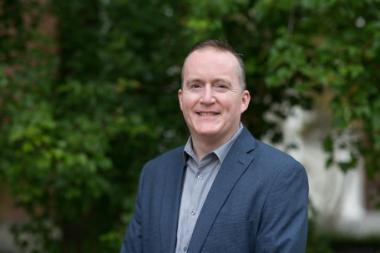February 26, 2021
Dr. Mark Yarhouse, the Dr. Arthur P. Rech and Mrs. Jean May Rech Endowed Chair in Psychology, was awarded one of the Council for Christian Colleges and Universities’ Networking Grants for Christian Scholars.
 What are the norms around sexuality and gender on Christian college and university campuses? What do Christian students think and believe about gender and sexuality? Are these issues largely concerns of morality or mental health?
What are the norms around sexuality and gender on Christian college and university campuses? What do Christian students think and believe about gender and sexuality? Are these issues largely concerns of morality or mental health?
These are some of the questions that Dr. Mark Yarhouse, the Dr. Arthur P. Rech and Mrs. Jean May Rech Endowed Chair in Psychology, will explore with his colleagues Dr. Janet B. Dean at Asbury University and Dr. Stephen P. Stratton at Asbury Theological Seminary with funds from the Council for Christian Colleges and Universities’ Networking Grants for Christian Scholars.
The Networking Grants for Christian Scholars are aimed at encouraging collaborative scholarship among faculty members serving at CCCU-member institutions with the ultimate goal of supporting high quality scholarship that brings Christian voices into contemporary academic conversations.
Yarhouse, Dean, and Stratton, who have worked together for more than a decade now, collaborated on the 2018 book Listening to Sexual Minorities: A Study of Faith and Sexuality on Christian College Campuses, which reflected 10 years of work across three studies to explore the challenges students who experience same-sex attraction or self-identify as gay or lesbian faced in taking their faith seriously, their sexuality seriously, and the relationship between their faith and sexuality seriously. This CCCU grant will fund the next iteration of their research which will examine gender identity questions.
“In the last five to 10 years, I think that students at Christian colleges and universities are asking more and more questions around gender,” Yarhouse said. “It’s become a much more salient topic, so the research is pretty important from many different angles.”
Yarhouse hopes this research will inform Christian institutions about how students are navigating and experiencing sexuality and gender questions and that it will yield resources and best practices that will enable institutions to offer students appropriate care and support as they maneuver these challenging issues.